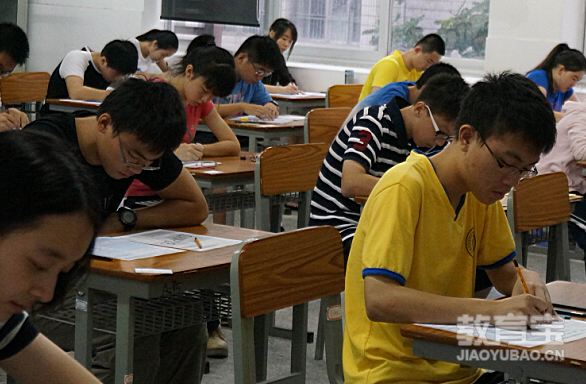 返回
教育头条
返回
教育头条

托福听力解析汇总分享
托福听力电影类真题解析,托福听力电影类话题是艺术类话题中较少见同学们也比较陌生的话题今天我们分析的这篇是今年3月16号考试中出现过一篇讲座,根据真题的重复情况,也很有可能出现在12月份的考试中。
题目:
1. What does the professor mainly discuss ?
Click on 2 answers.
A. Recommendations about how actors should prepare for a role
B. An important goal that actors should try to achieve
C. Some differences between acting on stage and acting for the camera
D. Some techniques used by actors to develop their characters
2. The professor describes an audition he performed for a talent agent. What does the professor imply about the agent?
A. The agent was unfamiliar with the professor's monologue.
B. The agent enjoyed working with new actors.
C. The agent was a former film actor.
D. The agent was apoor judge of acting ability.
3. How did theprofessor's attitude about the talent agent change in the years following his audition ?
A. From disappointed to angry
B. From calm to nervous
C. From confused to respectful
D. From insulted to flattered
4. What point does the professor emphasize when he compares film acting and stage acting ?
A. Stage directors have greater influence over actors than film directors do.
B. Stage actors need to exaggerate their performances more than film actors do.
C. Film actors need to improvise more than stage actors do.
D. Lighting and sound effects have a greater impact on stage acting than on film acting.
5. What two points does the professor make about film editors ?
Click on 2answers.
A. They select the stronger parts of actors' performances when they piece together films.
B. They have not always recognized the desirability of natural performances.
C. They may have as great an impact on the audience's experience as the actors do.
D. They decide the order in which scenes are filmed.
6. What point does the professor make about live audiences ?
A. Their reactions influence a theater actor's performance.
B. They have come to expect a very natural style of acting.
C. They are generally forgiving of mistakes actors make on stage.
D. They often include people who have seen the production more than once.
答案:(B,C),D,D,B,(A,C),A
笔记展示 出题点分析:(出题信号)
一、段:通过离题引出文章主旨一:表演的目的
actor
audition-----第二题:推断题,对应文章主旨,只有D选项与文章主旨表演有关
x acting
but: compliment------第三题:转折,把握大方向态度是不好到好的一个转换,只有 D选项符合这一态度的过渡
natural
goal
第二段:通过转折引出主旨二:舞台与荧屏表演的区别
stage
film
dift: 1: stage >life ----第四题:区别1成为考点,该道题不难,区别对比是一个大的出题意群,一方听不懂也可以通过另一方的讲解进行推断,笔记注意间接,同一出题意群不用反复记重复信息
also: scene x chronological
challenge natural
but on the other hand : editor enhance performance ----第五题:A选项
ultimately: effect editor ------第五题:C选项(考结果 ultimately=finally= result 因果信号)
第三段:话题转换到:stage
also : vary performance
unique audience ----- 第六题:信号词 also 讲座后一句(讲座和对话后一句是出题重点,一定要记下核心词)
原文:本篇讲座结构可以分成两大部分(一、部分:教授通过自己的经历引出表演的目的;第二部分:对比舞台表演与荧屏表演的区别(参考TPO第四篇 Screen Dance))
Listen to part of a lecture in an acting class
1. Professor: I think you know I was a film actor before entering academia.
2. When I was launching my acting career I auditioned for this talent agent.Someone, you know, who helps actors find work.
3. For the audition I used a powerful monologue about a man who lived in the same small town his whole life butdreams of seeing the world. (细节部分,不要记)
4. When I finished, the agent said, “that’s not acting, that’s just you being you.” (核心:not acting)
5. “Just you being you.” I felt like crawling under a rock. (核心:听出教授的态度: crawl under a rock = embarrassed)
6. But years later it dawned on me, this was the greatest compliment I could have gotten, even from an agent that was too na?veto represent me. (核心:需要听出转折:compliment)
7. My quote “mistake” was my natural acting.
8. But this is the goal for all actors, portraying another person while still appearing natural.
9. I never want my audience tothink, “hey, he’s acting really well.”Better that they forget that I’m acting at all.
10. Appearing natural is hard.
11. You must prepare for your role by knowing your character thoroughly and then using your intuition to make the most interesting or surprising choices. Choices that entertain your audience, while maintaining your character’s integrity. (7-11句都在讲一件事,听懂核心即可,不用重复记笔记:自然表演的重要性即文章前半部分的主旨)

12. Now, this kind of preparation, will constitute the bulk of our class work.
13. But, keep in mind, your final delivery, theperformance itself, will depend on whether it’s the stage or film. (核心:stage,film)
14. Because acting natural on stage is quite a different task from acting natural for the camera. (引入)
15. One difference is, okay, on stage larger than life performances are often necessary to appear realistic.
16. If the delivery is too subtle, the audiencewon’t even see the nuances.
17.Vocally,well you won’t always be wearing a microphone.
18.But in film you don’t need to project your voice or use your whole bodyto look natural.
19.The camera might bejust a few meters from your face and your face could be ten meters tall on themovie screen.
20.So you don’t have to domuch to make a big impact.
21.The same holds true for the microphone.
22.It may be a meter from your mouth so you can whisper and still be easily heard.(15-22都在说一件事:即舞台和荧屏的一、个区别:舞台需要夸张,听懂一方即可,不要重复记笔记)
23. Also, film actors perform in short spurts often last in a few minutes or less. (引入句)
24.Scenes aren’t necessarily shot in chronological order and may be reshot several times, in several takes at the director’s discretion. (核心:X chronological )
25. Yes, it’s challenging to give a natural performance in such unnatural situations. (核心:challenge)
26. But on the other hand, the film editor can greatly enhance your performance by combining only the stronger parts ofseveral takes and cutting out the weaker parts. (核心:editor combine )
27. Ultimately the effect we have on our film audience is largely determinedby how the editor pieces the film together.(核心:effect)
28. On stage there are no editors to compensate for any weaknesses, you cannot go back and redo ascene that doesn’t go well. (核心: stage X editor )
29. We’re often performing with full concentration for two or three hours at a stretch.
30. And since we’re repeating our performance multiple times, we also need to vary our performance slightly from night tonight, on the spot to adapt to the mood, to the unique responses of eachaudience.(核心: vary performance ; unique audience )
题目:
1. What does the professor mainly discuss ?
Click on 2 answers.
A. Recommendations about how actors should prepare for a role
B. An important goal that actors should try to achieve
C. Some differences between acting on stage and acting for the camera
D. Some techniques used by actors to develop their characters
2. The professor describes an audition he performed for a talent agent. What does the professor imply about the agent?
A. The agent was unfamiliar with the professor's monologue.
B. The agent enjoyed working with new actors.
C. The agent was a former film actor.
D. The agent was apoor judge of acting ability.
3. How did theprofessor's attitude about the talent agent change in the years following his audition ?
A. From disappointed to angry
B. From calm to nervous
C. From confused to respectful
D. From insulted to flattered
4. What point does the professor emphasize when he compares film acting and stage acting ?
A. Stage directors have greater influence over actors than film directors do.
B. Stage actors need to exaggerate their performances more than film actors do.
C. Film actors need to improvise more than stage actors do.
D. Lighting and sound effects have a greater impact on stage acting than on film acting.
5. What two points does the professor make about film editors ?
Click on 2answers.
A. They select the stronger parts of actors' performances when they piece together films.
B. They have not always recognized the desirability of natural performances.
C. They may have as great an impact on the audience's experience as the actors do.
D. They decide the order in which scenes are filmed.
6. What point does the professor make about live audiences ?
A. Their reactions influence a theater actor's performance.
B. They have come to expect a very natural style of acting.
C. They are generally forgiving of mistakes actors make on stage.
D. They often include people who have seen the production more than once.
答案:(B,C),D,D,B,(A,C),A
笔记展示 出题点分析:(出题信号)
一、段:通过离题引出文章主旨一:表演的目的
actor
audition-----第二题:推断题,对应文章主旨,只有D选项与文章主旨表演有关
x acting
but: compliment------第三题:转折,把握大方向态度是不好到好的一个转换,只有 D选项符合这一态度的过渡
natural
goal
第二段:通过转折引出主旨二:舞台与荧屏表演的区别
stage
film
dift: 1: stage >life ----第四题:区别1成为考点,该道题不难,区别对比是一个大的出题意群,一方听不懂也可以通过另一方的讲解进行推断,笔记注意间接,同一出题意群不用反复记重复信息
also: scene x chronological
challenge natural
but on the other hand : editor enhance performance ----第五题:A选项
ultimately: effect editor ------第五题:C选项(考结果 ultimately=finally= result 因果信号)
第三段:话题转换到:stage
also : vary performance
unique audience ----- 第六题:信号词 also 讲座后一句(讲座和对话后一句是出题重点,一定要记下核心词)
原文:本篇讲座结构可以分成两大部分(一、部分:教授通过自己的经历引出表演的目的;第二部分:对比舞台表演与荧屏表演的区别(参考TPO第四篇 Screen Dance))
Listen to part of a lecture in an acting class
1. Professor: I think you know I was a film actor before entering academia.
2. When I was launching my acting career I auditioned for this talent agent.Someone, you know, who helps actors find work.
3. For the audition I used a powerful monologue about a man who lived in the same small town his whole life butdreams of seeing the world. (细节部分,不要记)
4. When I finished, the agent said, “that’s not acting, that’s just you being you.” (核心:not acting)
5. “Just you being you.” I felt like crawling under a rock. (核心:听出教授的态度: crawl under a rock = embarrassed)
6. But years later it dawned on me, this was the greatest compliment I could have gotten, even from an agent that was too na?veto represent me. (核心:需要听出转折:compliment)
7. My quote “mistake” was my natural acting.
8. But this is the goal for all actors, portraying another person while still appearing natural.
9. I never want my audience tothink, “hey, he’s acting really well.”Better that they forget that I’m acting at all.
10. Appearing natural is hard.
11. You must prepare for your role by knowing your character thoroughly and then using your intuition to make the most interesting or surprising choices. Choices that entertain your audience, while maintaining your character’s integrity. (7-11句都在讲一件事,听懂核心即可,不用重复记笔记:自然表演的重要性即文章前半部分的主旨)

12. Now, this kind of preparation, will constitute the bulk of our class work.
13. But, keep in mind, your final delivery, theperformance itself, will depend on whether it’s the stage or film. (核心:stage,film)
14. Because acting natural on stage is quite a different task from acting natural for the camera. (引入)
15. One difference is, okay, on stage larger than life performances are often necessary to appear realistic.
16. If the delivery is too subtle, the audiencewon’t even see the nuances.
17.Vocally,well you won’t always be wearing a microphone.
18.But in film you don’t need to project your voice or use your whole bodyto look natural.
19.The camera might bejust a few meters from your face and your face could be ten meters tall on themovie screen.
20.So you don’t have to domuch to make a big impact.
21.The same holds true for the microphone.
22.It may be a meter from your mouth so you can whisper and still be easily heard.(15-22都在说一件事:即舞台和荧屏的一、个区别:舞台需要夸张,听懂一方即可,不要重复记笔记)
23. Also, film actors perform in short spurts often last in a few minutes or less. (引入句)
24.Scenes aren’t necessarily shot in chronological order and may be reshot several times, in several takes at the director’s discretion. (核心:X chronological )
25. Yes, it’s challenging to give a natural performance in such unnatural situations. (核心:challenge)
26. But on the other hand, the film editor can greatly enhance your performance by combining only the stronger parts ofseveral takes and cutting out the weaker parts. (核心:editor combine )
27. Ultimately the effect we have on our film audience is largely determinedby how the editor pieces the film together.(核心:effect)
28. On stage there are no editors to compensate for any weaknesses, you cannot go back and redo ascene that doesn’t go well. (核心: stage X editor )
29. We’re often performing with full concentration for two or three hours at a stretch.
30. And since we’re repeating our performance multiple times, we also need to vary our performance slightly from night tonight, on the spot to adapt to the mood, to the unique responses of eachaudience.(核心: vary performance ; unique audience )
以上就是教育宝头条带来的托福听力解析汇总分享详细介绍,想要查看更多托福资讯,敬请关注教育宝头条,也可以加我微信18560125702,我会解答你的学习问题。返回教育宝头条
【免责声明】本文仅代表作者本人观点,与教育宝无关。教育宝对文中陈述、观点判断保持中立,不对所包含内容的准确性、可靠性或完整性提供任何保证。请读者仅作参考,特此声明!





